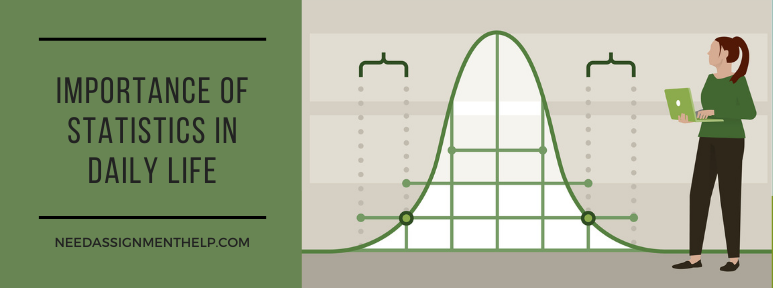


Statistics is the science of studying and learning from data. These are not just numbers and facts. It’s a disposition of knowledge and procedures that allow you directly to learn from data reliably. It allows you to evaluate quantitative and qualitative evidence that helps you differentiate between reasonable and doubtful conclusions. In today’s time data are plentiful and they are interpreted by so many scholars without any motivation. Science must progress, make discoveries through the study of data, and help in making predictions. It helps you to understand things more deeply.
Studying statistics is crucial in our time because it involves learning from data, navigating common problems and critically assessing the quality of analyses that others present. It is used to keep records, calculate probabilities gain knowledge, etc. Through numbers and other quantitative information, the world can understand a little bit better. It is used by primary students and MNC professionals in their daily lives. According to psychology, for students who get good command over it, there is a high chance of success. The definition of statistics has been expanded from just a collection of data to a much broader meaning. It is an extremely powerful tool to assess the experimental data and make the right decisions based on it.
It compares data through the mean, median, and mode. It helps in planning data collection in terms of designs and surveys. It is applicable to a wide variety of academic disciplines and is a tool for prediction and forecasting. Statistics is a branch of mathematics that helps to analyze what is happening around us. Applied mathematics is a segment of statistics specialized in data analysis.
Examples that prove the role of statistics in daily life:
Statistics plays a major role in our day-to-day life and analyzes a large number of data points and their properties. It is used in various disciplines such as social science, business, humanities, psychology, government, manufacturing, etc. Descriptive and Inferential statistics are two types of methods that are used for collecting and analyzing data. Statistics does not deal with qualitative data, it can only be used for quantitative characteristics. It is a tool that an analyst uses to summarize a data set. If that dataset includes a sample of a larger population, then the analyst can make or develop interpretations about the population based on the statistical results from the sample. It is mostly used in the application of sociology in the field of demography that studies fertility, mortality, population, and so on. The role of mathematics in statistics has increased, which has led to the development of a new branch of statistics called mathematical statistics.
Statistics is the science of studying and learning from data, allowing us to evaluate evidence and make informed decisions. It’s crucial for navigating common problems, critically assessing analyses, and understanding the world more deeply through quantitative information.
Statistics is used in various aspects of daily life, including government decision-making, emergency preparedness, weather forecasting, research interpretation, prediction modeling, quality testing, financial market analysis, business management, disease prediction, political campaigns, robotics, aerospace engineering, and more.
Statistics helps governments make informed decisions related to health, population, and education. In business, it aids in quality testing, financial analysis, and decision-making. In research, it assists in data interpretation, explanation, and acquisition, contributing to advancements in various fields.
Examples include government census data collection, emergency preparedness planning, weather forecasting, market analysis for business decisions, disease prediction in healthcare, and political campaign strategy development.
Descriptive statistics involve summarizing and describing data sets, while inferential statistics involve making predictions or inferences about a population based on sample data. Both methods are essential for collecting, analyzing, and interpreting data effectively.